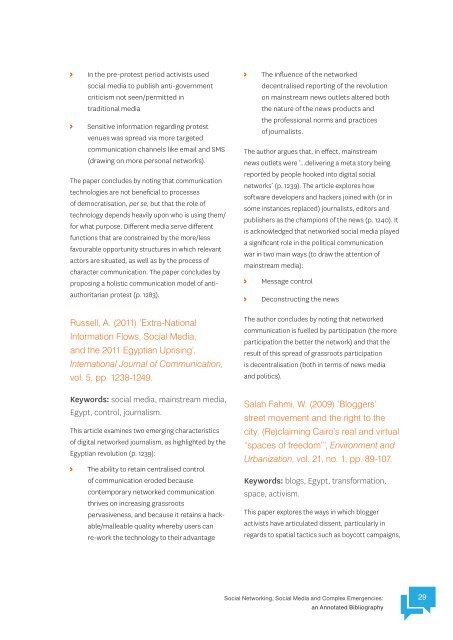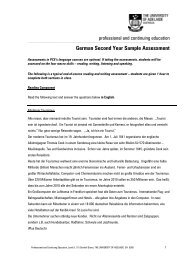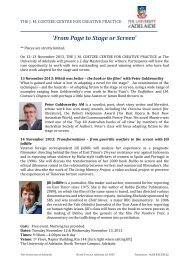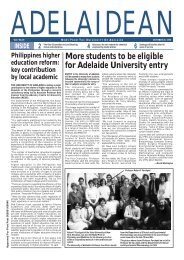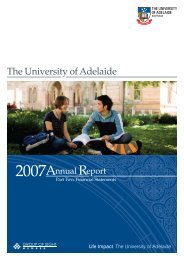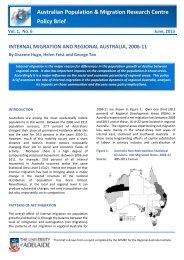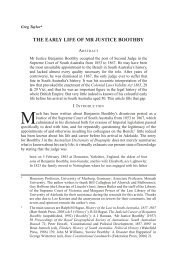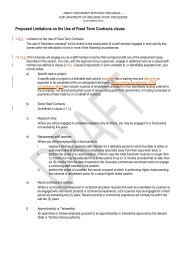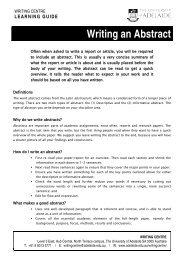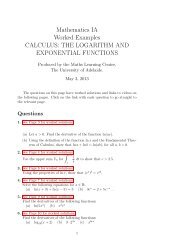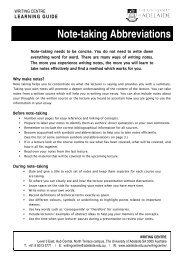Social Networking, Social Media and Complex Emergencies: an ...
Social Networking, Social Media and Complex Emergencies: an ...
Social Networking, Social Media and Complex Emergencies: an ...
You also want an ePaper? Increase the reach of your titles
YUMPU automatically turns print PDFs into web optimized ePapers that Google loves.
ƸƸ<br />
ƸƸ<br />
In the pre-protest period activists used<br />
social media to publish <strong>an</strong>ti-government<br />
criticism not seen/permitted in<br />
traditional media<br />
Sensitive information regarding protest<br />
venues was spread via more targeted<br />
communication ch<strong>an</strong>nels like email <strong><strong>an</strong>d</strong> SMS<br />
(drawing on more personal networks).<br />
The paper concludes by noting that communication<br />
technologies are not beneficial to processes<br />
of democratisation, per se, but that the role of<br />
technology depends heavily upon who is using them/<br />
for what purpose. Different media serve different<br />
functions that are constrained by the more/less<br />
favourable opportunity structures in which relev<strong>an</strong>t<br />
actors are situated, as well as by the process of<br />
character communication. The paper concludes by<br />
proposing a holistic communication model of <strong>an</strong>tiauthoritari<strong>an</strong><br />
protest (p. 1283).<br />
Russell, A. (2011) ‘Extra-National<br />
Information Flows, <strong>Social</strong> <strong>Media</strong>,<br />
<strong><strong>an</strong>d</strong> the 2011 Egypti<strong>an</strong> Uprising’,<br />
International Journal of Communication,<br />
vol. 5, pp. 1238-1249.<br />
Keywords: social media, mainstream media,<br />
Egypt, control, journalism.<br />
This article examines two emerging characteristics<br />
of digital networked journalism, as highlighted by the<br />
Egypti<strong>an</strong> revolution (p. 1239):<br />
ƸƸ<br />
The ability to retain centralised control<br />
of communication eroded because<br />
contemporary networked communication<br />
thrives on increasing grassroots<br />
pervasiveness, <strong><strong>an</strong>d</strong> because it retains a hackable/malleable<br />
quality whereby users c<strong>an</strong><br />
re-work the technology to their adv<strong>an</strong>tage<br />
ƸƸ<br />
The influence of the networked<br />
decentralised reporting of the revolution<br />
on mainstream news outlets altered both<br />
the nature of the news products <strong><strong>an</strong>d</strong><br />
the professional norms <strong><strong>an</strong>d</strong> practices<br />
of journalists.<br />
The author argues that, in effect, mainstream<br />
news outlets were ‘...delivering a meta story being<br />
reported by people hooked into digital social<br />
networks’ (p. 1239). The article explores how<br />
software developers <strong><strong>an</strong>d</strong> hackers joined with (or in<br />
some inst<strong>an</strong>ces replaced) journalists, editors <strong><strong>an</strong>d</strong><br />
publishers as the champions of the news (p. 1240). It<br />
is acknowledged that networked social media played<br />
a signific<strong>an</strong>t role in the political communication<br />
war in two main ways (to draw the attention of<br />
mainstream media):<br />
ƸƸ<br />
ƸƸ<br />
Message control<br />
Deconstructing the news<br />
The author concludes by noting that networked<br />
communication is fuelled by participation (the more<br />
participation the better the network) <strong><strong>an</strong>d</strong> that the<br />
result of this spread of grassroots participation<br />
is decentralisation (both in terms of news media<br />
<strong><strong>an</strong>d</strong> politics).<br />
Salah Fahmi, W. (2009) ‘Bloggers’<br />
street movement <strong><strong>an</strong>d</strong> the right to the<br />
city. (Re)claiming Cairo’s real <strong><strong>an</strong>d</strong> virtual<br />
“spaces of freedom”’, Environment <strong><strong>an</strong>d</strong><br />
Urb<strong>an</strong>ization, vol. 21, no. 1, pp. 89-107.<br />
Keywords: blogs, Egypt, tr<strong>an</strong>sformation,<br />
space, activism.<br />
This paper explores the ways in which blogger<br />
activists have articulated dissent, particularly in<br />
regards to spatial tactics such as boycott campaigns,<br />
<strong>Social</strong> <strong>Networking</strong>, <strong>Social</strong> <strong>Media</strong> <strong><strong>an</strong>d</strong> <strong>Complex</strong> <strong>Emergencies</strong>:<br />
<strong>an</strong> Annotated Bibliography<br />
29


